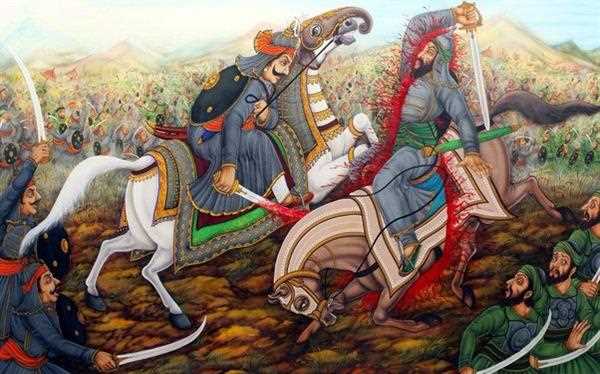There is no historical evidence to support the claim that Indian King Maharana Pratap cut Bahlol Lodhi in two parts including his horse. The story appears to be a popular myth or legend that has been perpetuated through various retellings over the years.

Maharana Pratap was a Rajput king who ruled the kingdom of Mewar in present-day Rajasthan, India, during the 16th century. He is known for his valiant resistance against the Mughal Empire and his efforts to defend the independence of his kingdom.
Read More: Explore The Beauty of the ancient Mughal city Agra
Bahlol Lodhi, on the other hand, was a ruler of the Delhi Sultanate who lived during the 15th century. He was not a contemporary of Maharana Pratap and there is no historical record of the two men ever meeting or engaging in battle.
The story of Maharana Pratap cutting Bahlol Lodhi in two parts including his horse appears to be a fabrication that has been popularized in folk tales and legends. While such stories may be entertaining, they should not be taken as historical facts without further evidence.
It is important to note that the practice of mutilating enemy corpses, including cutting them in two parts or dismembering them, was not uncommon in ancient and medieval warfare. However, such practices were generally reserved for particularly brutal conflicts and were not typically carried out by rulers or commanders who sought to maintain a sense of dignity and honor in battle.
In conclusion, while the story of Maharana Pratap cutting Bahlol Lodhi in two parts including his horse may be a popular legend, there is no historical evidence to support it. It is important to approach such stories with a critical eye and to seek out reliable sources of information when researching historical events.